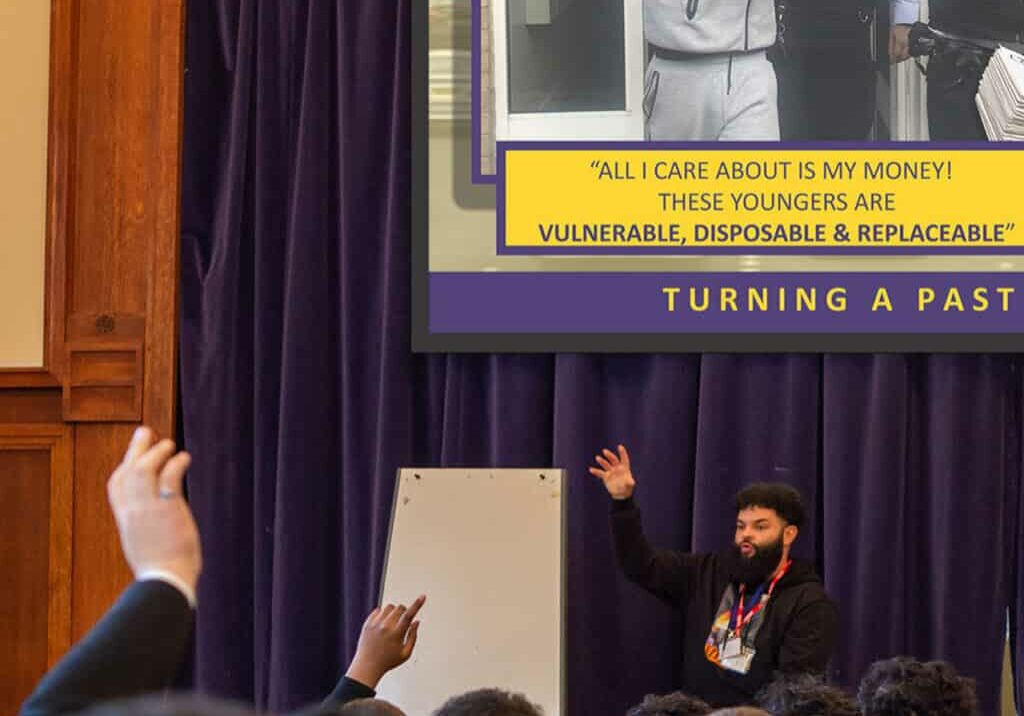The SOS+ Service delivers preventative sessions to children and young people in education settings; covering topics such as gang involvement, county lines and serious youth violence. The overarching aim is to ensure that children and young people increase their knowledge and understanding of all aspects of this lifestyle, are equipped to think critically, are able to assess risk and make better life choices.
The objectives of the assembly sessions are to ensure that children and young people have improved understanding of all aspects of gang involvement, exploitation and violence including:
- Push and pull factors; consequences and realities; the glamorising role of social media, music; popular youth culture, stereotypes, negative role models; how and where to get help.
- Improved engagement, attendance and attainment at school: entry into education, training and employment.

The resulting mind set shift and confidence makes them more resilient to the risks of becoming involved in gangs, exploitation and violence through:
- Improved thinking skills - more able to challenge and question, assess risk and employ critical thinking skills.
- Improved social skills – more able to withstand peer pressure, resolve conflicts, ask for help and form positive relationships with peers, parents and authority figures.
- Improved mental wellbeing - better sense of responsibility, maturity, self-worth, hope, positive self-identity.
Being more emotionally resilient and better able to understand triggers.
Our assembly sessions, of approximately an hour, can be delivered to a whole school or to designated year-groups. Sessions are specifically tailored to be age appropriate and trauma -informed, with programmes for Primary schools, Secondary schools, Pupil Referral Units and Alternative Education Providers.
All sessions are followed by an additional 30 minutes of ‘enhanced presence’ were our facilitators will remain, affording children and young people to ask questions and discuss their own experiences on a one-to-one basis. Should there be disclosures that indicate a clear safeguarding concern, our facilitators will report these to the school’s designated safeguarding lead immediately.
“When they mentioned how they had been through it and when they were saying how bad it really is and why you should not really do it. Also, I liked the part where they showed us images so we could see how bad it is and I liked the part where they went through the stages of grooming, so you know what they are and how to deal with them.”
Learner, Southampton
“Learning about how you can be exploited and groomed by people you thought you could trust; I would have thought it would have been more obvious than someone trying to act friendly and then using you.”
Student, Merton
